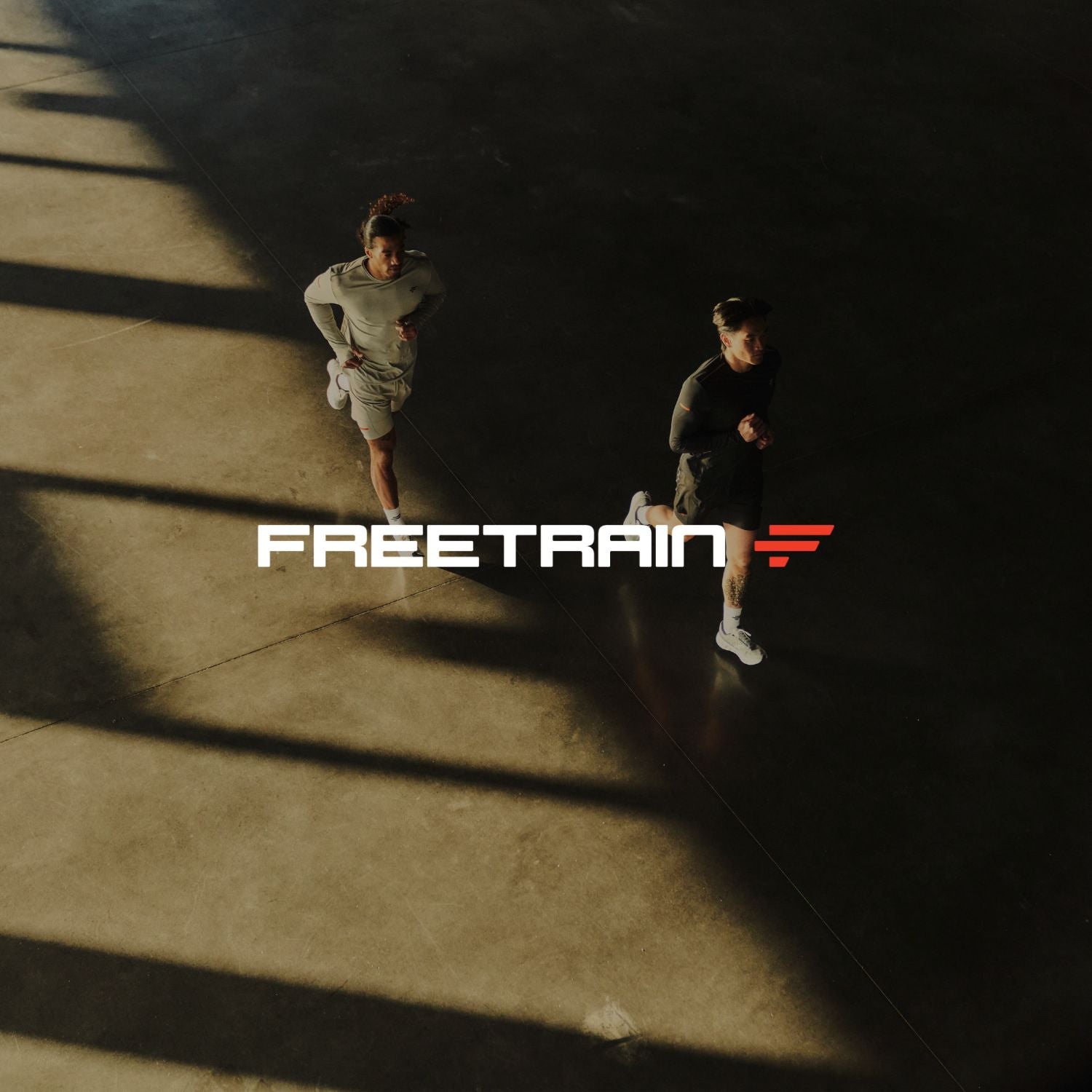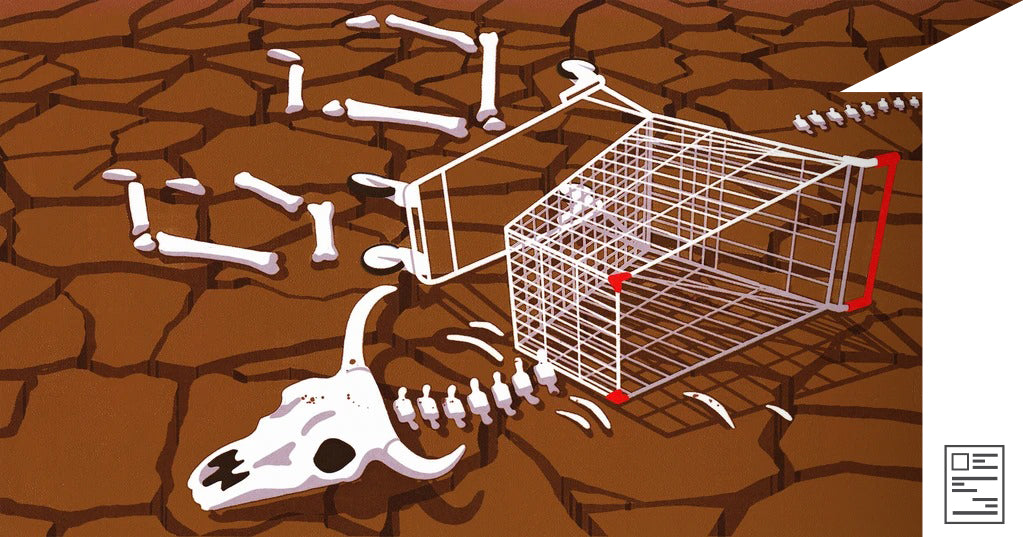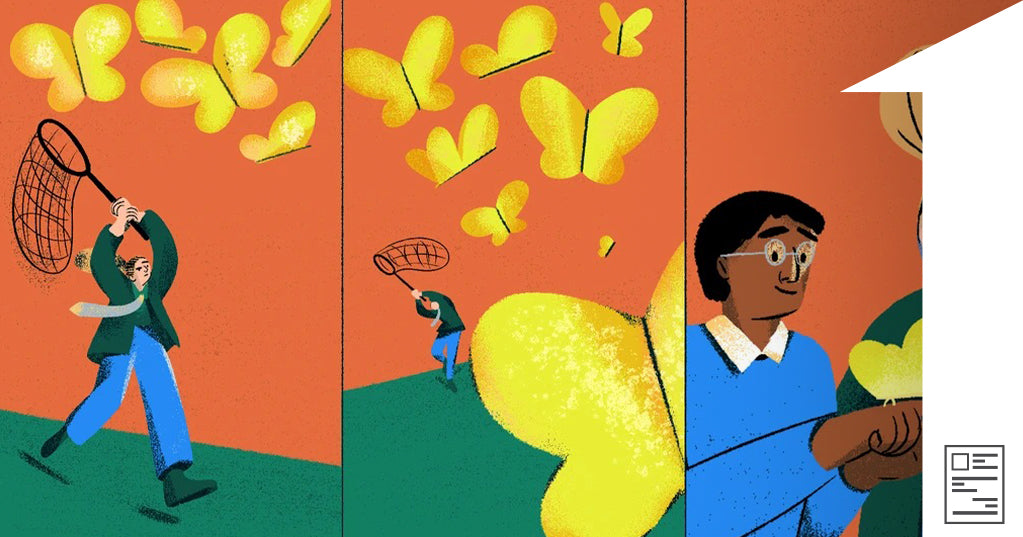Let’s say you’re running a successful store. You’ve figured out inventory, you’ve got a healthy amount of traffic, and your customers are raving about your products. Have you covered all your bases?
Not necessarily. You could still be experiencing a huge number of lost sales. How? Through shopping cart abandonment.
Nearly 88% of online shopping carts are abandoned before the customer completes a sale. That implies that your sales numbers may only be one-tenth of what they could be.
Now, it may not be possible to persuade all cart-abandoners to go through checkout and triple your sales. Some customers may have never had the intention to purchase in the first place. But it’s worth putting in the effort to resolve as many lingering hesitations as you can.
This article will look at how to recover lost customers after they abandon their carts with an abandoned cart campaign powered by email marketing. Then we’ll share the email marketing tools you need to set one up for yourself.
What are abandoned cart emails?
Abandoned cart emails are sent to customers who have added products to their cart but failed to check out.
It's a remarkably effective customer retention tactic. In fact, a recent report from Klaviyo reveals that businesses using cart recovery emails earn back 3%–14% of lost sales, with an average revenue per recipient of $5.81.
This number alone doesn’t sound striking. But multiply that by thousands of abandoned carts over a year and it’s clear abandoned cart emails can earn you more revenue.
These emails remind shoppers of what they left behind and encourage them to return and complete the purchase. You can customize abandoned cart emails with coupon codes, product images, CTA buttons, and more to get people back to the checkout page.

Data from Statista reports the average shopping cart abandonment rate is 88.1% and varies by industry:
- Baby and child: 94.4%
- Luxury: 94.4%
- Airlines: 90.9%
- Fashion: 90.7%
- Cosmetics: 85.7%
- Retail: 84.5%
Businesses both large and small can send cart abandonment emails to improve conversion rates and recover lost revenue. Using email marketing software, you can even automate the process so you don’t have to manually send each message.
Best abandoned cart email examples
Now that you know what an abandoned cart email is, let’s look at some top examples to get inspired by.
Casper
Subject line: Did you forget something?
Casper sends its cart abandonment email after you leave anything behind on its website. The subject line, “Did you forget something?” piques your interest and makes you click. Once opened, the email uses the playful, catchy headline “COME BACK TO BED” to draw you in.

Casper keeps its email clean and easy to read, with a clear CTA button that directs people back to the checkout process. The brand also includes testimonials in its emails to show that its products are worth the investment and gives readers the opportunity to see more reviews if they prefer.
Rudy’s
Subject line: Don’t let free shipping go to waste
Rudy’s sends a funny email follow-up as a part of its cart abandonment campaigns. The headline “Don’t put this off like a software update” is relatable. Most of its customers will know, if you don’t update your software, it can fail. The idea is that you don’t want bad things to happen if you skip buying your selected items.
Rudy’s also includes images of the products left behind and offers free shipping as a last-ditch effort to motivate customers to complete their purchase.

Whisky Loot
Subject line: Your cart is sobering up
Whisky Loot’s cart reminder email is a comical example. When a shopper leaves behind one of its subscription boxes, they receive a message with the subject line “Your cart is sobering up.” It’s unusual and out of the ordinary, which can improve open rate and conversion rate.
The email opens with a question, then lists all the things you can do with the whiskies inside the box. All the items are amusing, making viewers laugh and envision themselves using the items in these humorous ways. Whisky Loot wraps up with an FAQ section and CTA button saying ‘“TREAT YOURSELF.”

Nomad
Subject line: Nomad Gear is Selling Out Quick
Nomad’s abandoned cart email is another great example. The subject line gives viewers a fear of missing out (FOMO) feeling to get them to click. The imagery is on brand, supported by playful copy, but also explains how viewers can recover their cart.
The email also addresses a common pain point. Under the section “Afraid to Make The Leap?” the copy comforts readers by explaining Nomad’s return policy and two-year warranty. This offer also adds credibility to the email, showing that the brand stands behind its products.

Dollar Shave Club
Subject line: Where did you go?
Dollar Shave Club is known for its witty and personable marketing campaigns. It’s abandoned email series is no different. The subject line is short and gives readers a reason to explore it further.
Once the email is opened, bullet-point copy makes it easy to read and lists the reasons why Dollar Shave Club razors are good. The imagery shows exactly what you’ll get in the brand’s monthly box. Dollar Shave Club also offers a 100% money-back guarantee to clear any doubts and encourage readers to take advantage.

Abandoned cart email best practices
Abandoned cart emails are easy to create and doa great deal to pull back reluctant customers. There are three things that every abandoned cart email should have.
A reminder of what they’ve abandoned
It’s quite possible that after some time away your customers might decide they do want to buy after all. It may take a few hours after abandonment to be reminded of what they saw in the items in the first place. Unlike the cold reach out of a standard business email format, this is a warm lead.
Customers may leave carts behind for unexpected reasons. For example, an issue with an internet provider could have caused cart abandonment, and your customers may still want to buy. Saving their cart, or displaying the items that they planned to purchase, and sending it to them with a link is the easiest way to get those customers back.
Take a look at this example from American Giant. It’s a very simple message telling the customer what they’ve given up. Better yet, it gives a link to easily get back to your cart, skipping the registration page so you don’t have to provide your info all over again.

Here’s another recovery email that’s simple and effective from Perigold. It gets the point across quickly and even offers product recommendations further down the email to help people find other relevant products quickly and easily.

We have one more standout example. Chubbies has excelled in three dimensions with its great email: compelling visuals, great copy, and multiple links.

Pay close attention to the way Chubbies wrote this email. “Allow me to teleport you,” “Let’s turn this party up to 11,” and “Word up” all go along with the image of a shorts retailer run by fun-loving people. Also, note that clicking any of the three links in the email takes you back to your cart. (There are active links in the title, on the main picture, and also on the big button at the bottom of the email.)
Great email copy
The example from Chubbies serves as a good transition point into the next feature of standout abandoned cart emails: great copy.
Think of abandoned cart emails as a bonus marketing opportunity. You take care to make all your marketing materials compelling, and you shouldn’t slack off here. In addition, because of the purpose abandoned cart emails serve, they may be more aligned to welcome emails than what you’d normally send.
What are the ingredients for a good marketing email? An attention-grabbing subject line, great copy, and good images are all important. These next few emails excel at one or more of these areas.

Our favorite email with great copy comes from Food52. In addition to showing your items and a link to the abandoned cart, it takes a genuinely relatable approach to its messaging. See: “Your Cart Called” and “It’s hoping you’ll come back and see it.” These phrases personalize the shopping cart and make you feel like you should go back and check in on a friend.
Adidas isn’t afraid to use a bold email subject line: “Sorry to hear about your wi-fi’, assuming the receiver’s Wi-Fi had crashed and that’s why they left the site. It also writes: “IS YOUR WI-FI OKAY?” and “Maybe your browser crashed when looking at the iconic Gazelle silhouette,” with a link back to the customer’s cart.

And take a look at this example from Huckberry.

Huckberry makes a different sort of appeal: “Our sales and inventory are often limited, and we can’t guarantee that the products left in your cart will still be available when you decide to pull the trigger.”
There’s a sense of urgency. If you really wanted those items, then you shouldn’t delay. Scarcity is a powerful psychological sales trigger that smart online retailers know to take advantage of. Customers are afraid that something they want to buy might sell out. Huckberry taps into that anxiety and urges its customers to buy soon.
All six of these stores are using great copy, in addition to other tricks, to entice customers to go back to their cart and make the purchase.
Include a call-to-action (CTA) button
A CTA button is the button you use in your email to guide viewers’ toward their cart. It’s the part of the email a viewer needs to click to take the action you want them to take. CTA buttons vary in style depending on your brand, but they all have the same goal: get people back to their shopping carts.
You can use a standard CTA like Return to Cart or Shop Now. Or you can get more creative and use a CTA like Society6, which says “Get My 30% Off.”

Aim to use a CTA button that is action packed. Use verbs like “get” or “shop” to motivate people to buy items in their cart. You can also test different CTA text in your email marketing software to see which resonates with your audience. This will help you see higher revenue per recipient and improve the results of your cart abandonment series.
Abandoned cart email strategy tips
Every abandoned cart email needs compelling copy and an easy way to get back to the cart, or at least a display of the items that were abandoned. The following tips are not must-haves, but nice-to-haves, if you can implement them.
Consider timing
Recent studies show that the sooner you send an abandoned cart email, the better results you’ll get. Email marketing agency Rejoiner confirmed this after analyzing millions of cart recovery emails in its platform. The goal was to find the best timing that drove revenue for its clients.
The result? Rejoiner found that sending a follow-up email after one hour resulted in an average conversion rate of 16%. If you send an email too soon, you’ll likely see lower conversion rates. If you wait too long, the results are even worse.

Rejoiner also found that although the first email is the most effective, it won’t recover all the lost sales left by cart abandoners. It recommends using a three-part series to capture the most revenue possible:
- First email, sent one hour after abandonment
- Second email, sent one day after abandonment
- Third email, sent three days after abandonment
Setting up an abandoned cart email sequence like the above is easy in Shopify Email. Learn more by reading How to Build an Abandoned Cart Email Sequence.
Offer a discount
Most customers abandon their carts because the final price is more than what they expected.
When people think about how much they’re going to pay, they’re usually adding up the prices of each item in their cart. They don’t always think about taxes or shipping, and if they do, they often lowball the estimates.
That’s why the top reason people abandon their cart is because extra costs were too high.
And there’s a simple way to recover the customers who have been scared away by the final price: issue a discount.
Alex Mill’s abandoned cart email subject line is clear: “Get Them For 15% Off!.” Once you open the email, you’ll notice the items you left behind paired with this 15% off discount. The results? Likely a sale.

Discounts are easy to create. Simply decide on the amount, generate a discount code, and leave it in the abandoned cart email.
Now, you’ve got to decide carefully whether discounts make sense for your business. You know that a lot of customers are abandoning their carts, but no two stores face the exact same mix of reasons. You have a good chance of encouraging your customers to make their purchases after a discount or free shipping costs, but you also don’t want to lose too much in sales.
That’s a fine line to walk, and you have to decide if or how you offer your discounts. There’s no right answer; your customers may walk away from deals because of prices, or for reasons that have nothing to do with them. It’s up to you to discover how they behave.
Include social proof
Social proof is one of your most influential marketing tools. It’s the best way to build trust with cart abandoners and can encourage them to complete a purchase. Social proof makes people pause to check out what others have to say about a product. It gets them to take a chance with your brand because others are saying good things about it.
In the Adidas email described above, the brand also includes social proof in its messaging. Viewers can see what recent buyers have to say about the shoes they left behind through customer reviews.

Reserve the items in the cart
Remember how we discussed that Huckberry uses the possibility of your item selling out to encourage a purchase? There’s another way to take advantage of that scarcity effect.
Here it is: your customers may be encouraged to go through checkout if you guarantee that you’ll hold the abandoned items for them for a definite but limited time.
Customers know that small stores without super-sophisticated supply chains frequently sell out of popular items. Knowing that the items will be held for them may push them to buy.
The following email from Beardbrand informs shoppers that the items in their cart are reserved, but will expire soon. It uses this psychological trick to motivate people to buy before supply runs out.

We’ve designated “reserve the items” as a great-to-have and not an essential because we know that you want to ship to the customers who have already paid in case supply is short. And you absolutely should. So only offer to reserve the cart if you’re sure that your stock is generous and you can afford to hold the items for many who potentially won’t pay.
Test abandoned cart texts
An abandoned cart text is similar to an abandoned cart email, but the message is sent to a person’s mobile device. It’s a newer sales recovery tactic, but works because people are more likely to see an SMS push notification than an email in their inbox, which can lead to higher click-through rates and sales.

You can use data you collect about a shopper, such as name and the products they left behind, to personalize a text message. Some SMS marketing providers like ManyChat even let you include one-click links to bring customers back to a Shopify product page.

Learn how to create an abandoned cart text by reading How to Reduce Abandoned Cart Rate with SMS.
How do I start sending abandoned cart emails?
By now you should see that abandoned cart emails needn’t be too fancy.
If you’re on Shopify, you can find out how to set up abandoned checkout recovery emails here.
In addition, there are several well-reviewed apps that can give you other sorts of functionality:
If you’re not on Shopify, you still have options, such as Rejoiner. Most of these programs will have abandoned cart email templates you can use to start sending right away. You’ll just need to update the copy, images, offer, and any other tweaks to make it feel like your brand.
If you want a little more help on the creative side, check out the following free abandoned cart email templates:
- Ready-to-Use Abandoned Cart Email Templates by Bolt
- 60+ Free Abandoned Cart Email Templates by TargetBay
- Abandoned Cart Email Templates by Stripo
Recover more sales in your ecommerce business
Whether you’re an ecommerce marketer or online store owner, abandoned cart emails are crucial to increase sales. They are easy to set up and really should be something everyone does, given the high average shopping cart abandonment rate. Learn from the pros above, and get started on recovering sales today.













